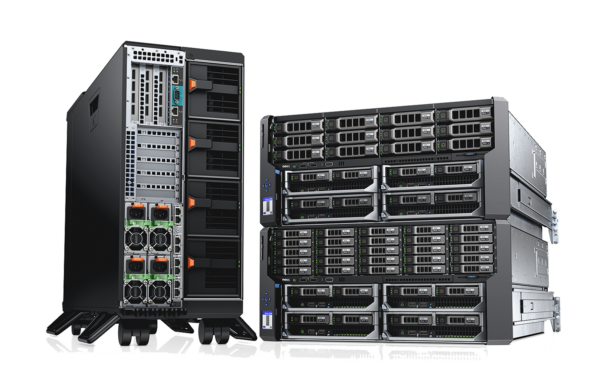Servers are the backbone of the internet and computing networks, facilitating data exchange, hosting websites, managing emails, and supporting various applications and services. Essentially, a server is a computer or system that provides resources, data, services, or programs to other computers, known as clients, over a network. In the context of a VPN (Virtual Private Network) service like FineVPN, servers play a crucial role in enabling secure and private connections across the internet.
The Role and Functionality of Servers
Servers are designed to handle requests from clients and return the appropriate response. This process is what makes browsing the internet, sending emails, and accessing cloud services possible. Servers can be dedicated, meaning they perform no other tasks besides their server duties, or they can be used for other purposes alongside their server responsibilities. The efficiency, capacity, security, and reliability of a server are critical, especially for services that demand high availability like VPNs, online gaming, and e-commerce websites.
Key Features of Servers
Several features define the capabilities and performance of a server:
- Processing Power: Determined by the CPU (Central Processing Unit), it affects how quickly a server can process instructions.
- Memory: RAM (Random Access Memory) is crucial for the speed at which servers can access data and execute applications.
- Storage: Servers need large amounts of data storage for files, databases, and applications. SSDs (Solid State Drives) are often preferred for their speed.
- Network Connectivity: High bandwidth and low latency are essential for servers to handle data transmission efficiently.
- Security: Servers must have robust security measures to protect against unauthorized access and cyber threats.
- Scalability: The ability to increase resources as demand grows is crucial for maintaining performance.
Types of Servers
| Type of Server | Function |
|---|---|
| Web Server | Hosts websites and delivers web pages to clients’ browsers. |
| Email Server | Manages and stores emails, facilitating sending and receiving. |
| FTP Server | Facilitates file transfers using the File Transfer Protocol. |
| VPN Server | Provides a secure and encrypted connection for transmitting data over the internet. |
| Database Server | Stores and provides access to database services. |
| Application Server | Hosts and runs applications for client use. |
Applications of Servers
Servers can be used in numerous ways, including:
- Web Hosting: Storing website files for access via the internet.
- Email Management: Sending, receiving, and storing emails.
- Data Storage and Backup: Securely storing data for backup and recovery purposes.
- Gaming: Hosting online multiplayer games for seamless, global player interaction.
- VPN Services: Creating secure and encrypted connections for privacy and security online.
Challenges and Solutions in Server Management
Several problems can arise with server use, including:
- Downtime: Redundancy, failover systems, and regular maintenance can mitigate downtime risks.
- Security Vulnerabilities: Regular updates, firewalls, and intrusion detection systems can enhance security.
- Overloading: Load balancing and scalable resources can prevent server overload.
- Data Loss: Regular backups and disaster recovery plans are essential for data protection.
Comparative Analysis with Similar Technologies
| Feature | Server | Cloud Services |
|---|---|---|
| Resource Location | Fixed, physical location | Distributed, virtualized resources |
| Scalability | Limited by hardware; manual upgrades required | Easily scalable; resources adjusted on demand |
| Cost | High initial investment; maintenance costs | Pay-as-you-go; potentially lower cost |
| Control | Full control over hardware and software | Limited control; dependent on provider |
| Security | Customizable to specific needs | Standardized; reliant on provider’s measures |
Future Technologies and Server Evolution
Emerging technologies like edge computing, quantum computing, and AI-driven automation are set to revolutionize server infrastructure. Edge computing aims to bring data processing closer to the location where it is needed, reducing latency. Quantum computing promises unprecedented processing power, while AI could automate server management, enhancing efficiency and reliability.
The Intersection of VPN and Servers
VPNs rely on servers to reroute internet traffic through a secure and encrypted tunnel, ensuring privacy and security online. FineVPN, for instance, uses a network of servers located in various countries to provide users with secure, private, and unrestricted internet access. This setup allows users to mask their IP addresses, bypass geographical restrictions, and protect their data from surveillance and cyber threats.
Further Reading and Resources
For more information about servers and related technologies, consider exploring:
- RFC 2616 – Hypertext Transfer Protocol — HTTP/1.1
- The Internet Engineering Task Force (IETF)
- [The Internet Society


